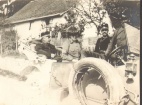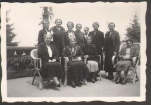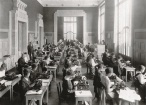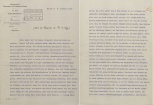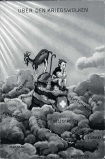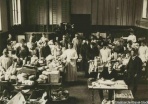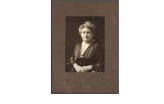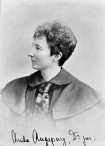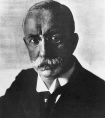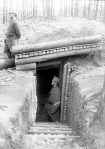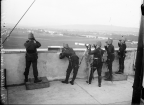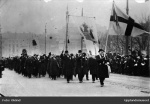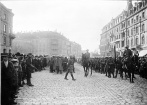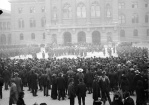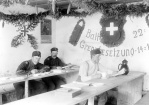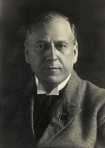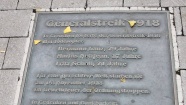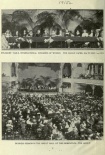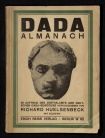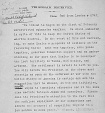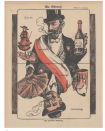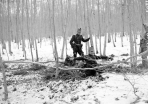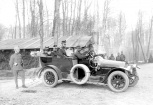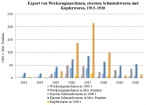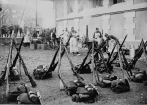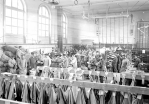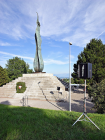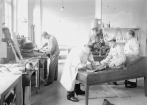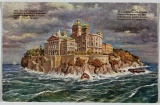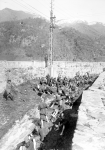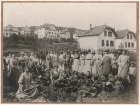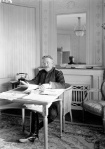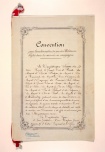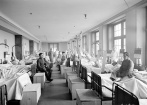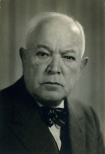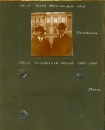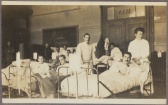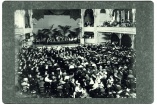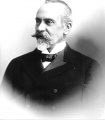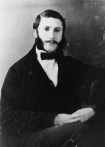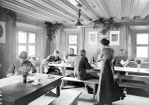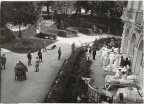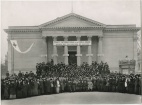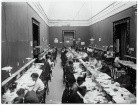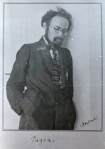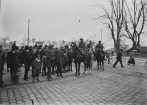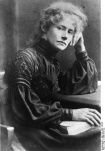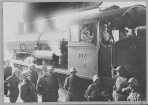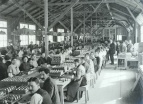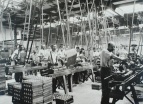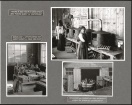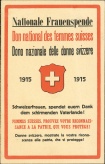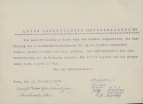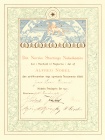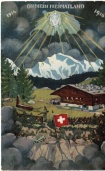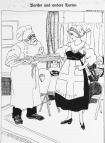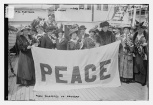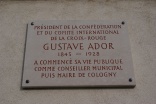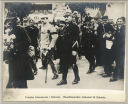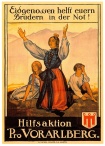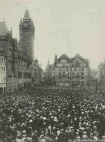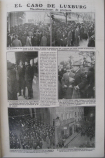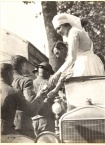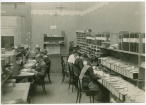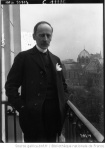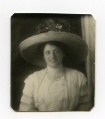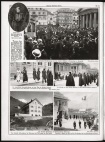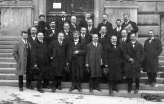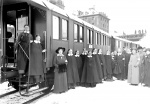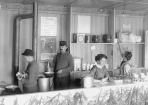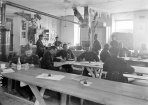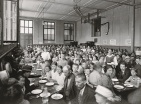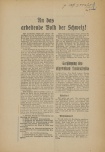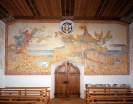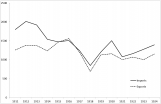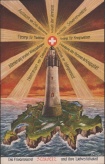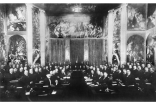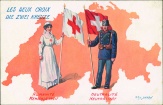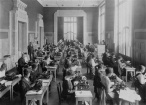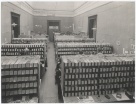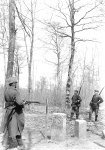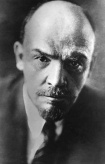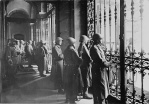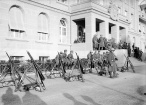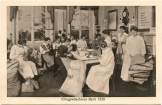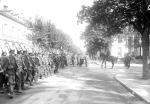Regions Switzerland
Survey Articles (Regional)
Regional Thematic Articles
- Centenary (Switzerland)
- Commemoration (Switzerland)
- Domestic Politics and Neutrality (Switzerland)
- Exile and Migration (Switzerland)
- Food and Nutrition (Switzerland)
- Historiography 1918-Today (Switzerland)
- International Committee of the Red Cross
- Internees (Switzerland)
- Labour, Labour Movements, Trade Unions and Strikes (Switzerland)
- Literature (Switzerland)
- Military and Strategy (Switzerland)
- Propaganda War/Espionage (Switzerland)
- Swiss Companies in World War One (Switzerland)
- Wartime and Post-war Economies (Switzerland)
- Women, Gender, Social Movements (Switzerland)
Encyclopedic Entries
- Ador, Gustave
- Border Occupation (Switzerland)
- Border Occupation (Switzerland)
- Cendrars, Blaise
- Dada
- Discussion: Humanitarianism
- Feminist Pacifism
- Grimm-Hoffmann Affair
- Grimm, Robert
- Influenza Pandemic (Switzerland)
- Island of Peace (Switzerland)
- Landesstreik (Switzerland)
- London Declaration of the League of Nations
- Military Justice (Switzerland)
- Neutrality
- Oberstenaffäre
- Oltener Aktionskomitee
- Plan H
- Schweizerischer Vaterländischer Verband
- Société Suisse de Surveillance Economique (SSS)
- Voices in the Storm (journal)
- Vollmachtenregime
- Vorarlberg Referendum
- Wille, Ulrich
- Zimmerwald Conference
- Züblin-Spiller, Else
Survey Articles (Regional)
-
As a neutral country, Switzerland was not involved in the devastating military conflicts of 1914-18. Nevertheless, concerning the economy, communications, diplomacy, secret services and war … READ MORE
Regional
Regional Thematic Articles
-
This article examines how Switzerland has remembered and commemorated the First World War, during which the country maintained a state of neutrality but in which it was still manifoldly involved. It … READ MORE
Regional Thematic -
Neutrality is a fundamental problem in modern Swiss history and played a pivotal role in both world wars. During the Second World War the danger came from the outside, while during the First World … READ MORE
Regional Thematic -
This article analyses Swiss migration policy and Switzerland’s role as a country of asylum from 1914 to 1918. Subsequent sections discuss the change in migration patterns; how political emigrants … READ MORE
Regional Thematic -
In a rapidly expanding universe of publications it is important to reflect from time to time. A history of the historiography of the First World War would not be complete without an analysis of … READ MORE
Regional Thematic -
This article seeks to analyze how the International Committee of the Red Cross (ICRC), the oldest existing humanitarian organization, coped with the outbreak of the First World War and its aftermath. … READ MORE
Regional Thematic -
Swiss governmental and non-governmental organizations were intensely involved in humanitarian activities for the victims of World War I. From 1916 on, the country opened its borders to a select … READ MORE
Regional Thematic -
This article analyses the development of the Swiss labour movement and working-class protest climaxing in the National General Strike in November 1918. Subsequent sections discuss the war’s social … READ MORE
Regional Thematic -
During the First World War, many authors from neighbouring countries who spoke out against the war and its enormous costs found exile in Switzerland. Given that Switzerland was torn between its … READ MORE
Regional Thematic -
This article describes the business development and the opportunities and risks that Swiss companies faced during the First World War. Although the export industries that supplied essential products … READ MORE
Regional Thematic -
Though Switzerland was not conquered, its economy was strongly affected by the First World War, negatively as well as positively. On the one hand, the import of foodstuff and raw materials … READ MORE
Regional Thematic -
This article explores the war’s impact on women’s economic and legal status in Switzerland, a country indirectly affected by the war. It examines the forms and directions of women’s … READ MORE
Regional Thematic
Encyclopedic Entries
-
Ador was the third president of the International Committee of the Red Cross (ICRC) and a Swiss minister during WWI. He displayed the charisma, the diplomatic skills and the decisiveness necessary to … READ MORE
Entry -
Shortly after the outbreak of the First World War, the Swiss army moved into a staggered defensive position in the northwest of the country, facing the Franco-German front. The southern border was … READ MORE
Entry -
Shortly after the outbreak of the First World War, the Swiss army moved into a staggered defensive position in the northwest of the country, facing the Franco-German front. The southern border was … READ MORE
Entry -
The life and works of the poet Blaise Cendrars testify to a disturbing paradox: while encapsulating the trauma that was the result from his war experience, they also illustrate the creative virtues … READ MORE
Entry -
Dada, a transnational movement of artists, was founded in Zurich in 1916. It disappeared in 1924, after a sham trial against Maurice Barrès in 1921. Far from pacifism, Dada declared war against war. … READ MORE
Entry -
This is the first in what it is hoped will become a series of discussion forums hosted by ''1914-1918-online''. In this discussion forum, General Editor Peter Gatrell invited contributions that … READ MORE
Entry -
A minority section of the women’s movements opposed World War I and organized the International Congress of Women at The Hague in April 1915. Its participants demanded women’s rights and more … READ MORE
Entry -
Robert Grimm was the most powerful socialist politician in Switzerland throughout the first half of the 20th century. As the organiser of the Zimmerwald and Kiental Conferences, he was one … READ MORE
Entry -
The Spanish flu, the heaviest influenza pandemic in history, coincided with the end of World War One. In Switzerland, the flu had an immense impact on the relationship between the army command, the … READ MORE
Entry -
During World War I, the idea of Switzerland as a peaceful island was created and propagated by many means, for example postcards. After the end of the war, this metaphor gained the status of a myth, … READ MORE
Entry -
From 12 to 14 November 1918, a national general strike took place in Switzerland, in which around 250,000 strikers participated. The strike largely ran an orderly course and was terminated by the … READ MORE
Entry -
In neutral Switzerland, the executive powers were strengthened more than in some belligerent countries. In a state of emergency, the military justice system played a crucial role; it not only acted … READ MORE
Entry -
During the 19th century, neutrality evolved into a set of legal and political tools designed to limit the impact of wars on the international system. This form of neutrality did not … READ MORE
Entry -
The so-called “''Oberstenaffäre''” (colonel’s affair) was a political scandal in Switzerland which erupted after details of a close cooperation between Swiss, German, and Austro-Hungarian … READ MORE
Entry -
The ''Oltener Aktionskomitee'' was elected in February 1918 by the committee of the Swiss Federation of Trade Unions (''Schweizerischer Gewerkschaftsbund'', SGB), the executive board of the Social … READ MORE
Entry -
The Swiss Patriotic Federation (''Schweizerischer Vaterländischer Verband'', or SVV) was a private, right-wing association which was set up between 1919 and 1948 in response to the nationwide … READ MORE
Entry -
The privately organized SSS existed from October 1915 to July 1919 to prevent Swiss companies from forwarding goods and raw materials produced by the Entente to the Central Powers. The SSS grew from … READ MORE
Entry -
“''Stimmen im Sturm''” was a Swiss cooperative which published nine issues with decidedly Germanophile content. They not only defended the German war effort, but also argued against the French … READ MORE
Entry -
During the First World War, the Swiss federal government imposed a state of emergency, which was established to ensure the maintenance of Swiss neutrality, supply and integrity. As the war … READ MORE
Entry -
The latter Austrian ''Land'' Vorarlberg saw the rise of a grass root movement for a political union with Switzerland between autumn 1918 and spring 1919. These ideas never materialized, however, as … READ MORE
Entry -
Anti-war socialists from ten countries met in Zimmerwald in September 1915. They adopted a manifesto and founded the International Socialist Commission (ISC), with its headquarters in Bern. A … READ MORE
Entry -
In the context of the Swiss organisation ''Schweizer Verband Soldatenwohl ''Else Spiller initiated facilities for soldiers providing alcohol-free catering (''Soldatenstuben'') and organized social … READ MORE
Entry
See also
-
The article examines international efforts to curb states’ war-making prerogatives in the second half of the “long” 19th century. It captures new humanitarian sentiments circulating … READ MORE
Thematic -
This article compares the history of labour movements during the war across a range of European countries. It charts the impact of the economic realities of the war upon labour and analyses the … READ MORE
Thematic -
Many issues surrounding the conduct of war in the years 1914-1918 were impervious to international negotiation or mediation, due either to a complete lack of consensus or to an absence of trust and … READ MORE
Thematic -
National Red Cross societies played a very important role in the First World War. They supported armies’ medical services, brought relief to prisoners of war and sometimes organized their … READ MORE
Thematic -
This article deals with the nature of social conflict during the war. The length of the conflict and growing food shortages on the home front strained relations between individuals and between social … READ MORE
Thematic -
It may surprise us to learn that some sectors of the European public were in favour of the war in 1914. The impact of modern weapons was not well understood and many people in the government, … READ MORE
Thematic
Survey Articles (Regional)
-
As a neutral country, Switzerland was not involved in the devastating military conflicts of 1914-18. Nevertheless, concerning the economy, communications, diplomacy, secret services and war … READ MORE
Regional
Regional Thematic Articles
-
This article examines how Switzerland has remembered and commemorated the First World War, during which the country maintained a state of neutrality but in which it was still manifoldly involved. It … READ MORE
Regional Thematic -
Neutrality is a fundamental problem in modern Swiss history and played a pivotal role in both world wars. During the Second World War the danger came from the outside, while during the First World … READ MORE
Regional Thematic -
This article analyses Swiss migration policy and Switzerland’s role as a country of asylum from 1914 to 1918. Subsequent sections discuss the change in migration patterns; how political emigrants … READ MORE
Regional Thematic -
In a rapidly expanding universe of publications it is important to reflect from time to time. A history of the historiography of the First World War would not be complete without an analysis of … READ MORE
Regional Thematic -
This article seeks to analyze how the International Committee of the Red Cross (ICRC), the oldest existing humanitarian organization, coped with the outbreak of the First World War and its aftermath. … READ MORE
Regional Thematic -
Swiss governmental and non-governmental organizations were intensely involved in humanitarian activities for the victims of World War I. From 1916 on, the country opened its borders to a select … READ MORE
Regional Thematic -
This article analyses the development of the Swiss labour movement and working-class protest climaxing in the National General Strike in November 1918. Subsequent sections discuss the war’s social … READ MORE
Regional Thematic -
During the First World War, many authors from neighbouring countries who spoke out against the war and its enormous costs found exile in Switzerland. Given that Switzerland was torn between its … READ MORE
Regional Thematic -
This article describes the business development and the opportunities and risks that Swiss companies faced during the First World War. Although the export industries that supplied essential products … READ MORE
Regional Thematic -
Though Switzerland was not conquered, its economy was strongly affected by the First World War, negatively as well as positively. On the one hand, the import of foodstuff and raw materials … READ MORE
Regional Thematic -
This article explores the war’s impact on women’s economic and legal status in Switzerland, a country indirectly affected by the war. It examines the forms and directions of women’s … READ MORE
Regional Thematic
Encyclopedic Entries
-
Ador was the third president of the International Committee of the Red Cross (ICRC) and a Swiss minister during WWI. He displayed the charisma, the diplomatic skills and the decisiveness necessary to … READ MORE
Entry -
Shortly after the outbreak of the First World War, the Swiss army moved into a staggered defensive position in the northwest of the country, facing the Franco-German front. The southern border was … READ MORE
Entry -
Shortly after the outbreak of the First World War, the Swiss army moved into a staggered defensive position in the northwest of the country, facing the Franco-German front. The southern border was … READ MORE
Entry -
The life and works of the poet Blaise Cendrars testify to a disturbing paradox: while encapsulating the trauma that was the result from his war experience, they also illustrate the creative virtues … READ MORE
Entry -
Dada, a transnational movement of artists, was founded in Zurich in 1916. It disappeared in 1924, after a sham trial against Maurice Barrès in 1921. Far from pacifism, Dada declared war against war. … READ MORE
Entry -
This is the first in what it is hoped will become a series of discussion forums hosted by ''1914-1918-online''. In this discussion forum, General Editor Peter Gatrell invited contributions that … READ MORE
Entry -
A minority section of the women’s movements opposed World War I and organized the International Congress of Women at The Hague in April 1915. Its participants demanded women’s rights and more … READ MORE
Entry -
Robert Grimm was the most powerful socialist politician in Switzerland throughout the first half of the 20th century. As the organiser of the Zimmerwald and Kiental Conferences, he was one … READ MORE
Entry -
The Spanish flu, the heaviest influenza pandemic in history, coincided with the end of World War One. In Switzerland, the flu had an immense impact on the relationship between the army command, the … READ MORE
Entry -
During World War I, the idea of Switzerland as a peaceful island was created and propagated by many means, for example postcards. After the end of the war, this metaphor gained the status of a myth, … READ MORE
Entry -
From 12 to 14 November 1918, a national general strike took place in Switzerland, in which around 250,000 strikers participated. The strike largely ran an orderly course and was terminated by the … READ MORE
Entry -
In neutral Switzerland, the executive powers were strengthened more than in some belligerent countries. In a state of emergency, the military justice system played a crucial role; it not only acted … READ MORE
Entry -
During the 19th century, neutrality evolved into a set of legal and political tools designed to limit the impact of wars on the international system. This form of neutrality did not … READ MORE
Entry -
The so-called “''Oberstenaffäre''” (colonel’s affair) was a political scandal in Switzerland which erupted after details of a close cooperation between Swiss, German, and Austro-Hungarian … READ MORE
Entry -
The ''Oltener Aktionskomitee'' was elected in February 1918 by the committee of the Swiss Federation of Trade Unions (''Schweizerischer Gewerkschaftsbund'', SGB), the executive board of the Social … READ MORE
Entry -
The Swiss Patriotic Federation (''Schweizerischer Vaterländischer Verband'', or SVV) was a private, right-wing association which was set up between 1919 and 1948 in response to the nationwide … READ MORE
Entry -
The privately organized SSS existed from October 1915 to July 1919 to prevent Swiss companies from forwarding goods and raw materials produced by the Entente to the Central Powers. The SSS grew from … READ MORE
Entry -
“''Stimmen im Sturm''” was a Swiss cooperative which published nine issues with decidedly Germanophile content. They not only defended the German war effort, but also argued against the French … READ MORE
Entry -
During the First World War, the Swiss federal government imposed a state of emergency, which was established to ensure the maintenance of Swiss neutrality, supply and integrity. As the war … READ MORE
Entry -
The latter Austrian ''Land'' Vorarlberg saw the rise of a grass root movement for a political union with Switzerland between autumn 1918 and spring 1919. These ideas never materialized, however, as … READ MORE
Entry -
Anti-war socialists from ten countries met in Zimmerwald in September 1915. They adopted a manifesto and founded the International Socialist Commission (ISC), with its headquarters in Bern. A … READ MORE
Entry -
In the context of the Swiss organisation ''Schweizer Verband Soldatenwohl ''Else Spiller initiated facilities for soldiers providing alcohol-free catering (''Soldatenstuben'') and organized social … READ MORE
Entry


































